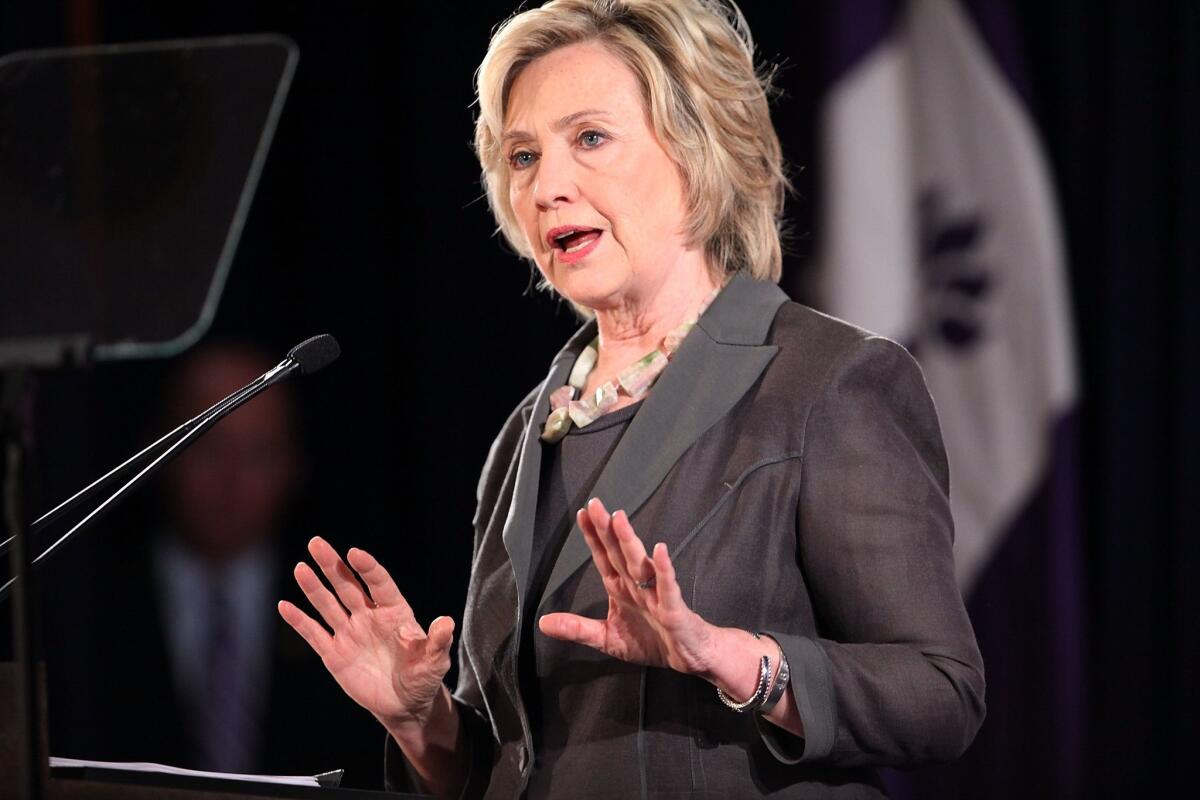Editorial: Hillary Clinton’s email issue: a self-inflicted wound

Hillary Clinton gives an economic speech at New York University on July 24 in New York City. It has been disclosed by inspector general for the intelligence community that material Hillary Clinton emailed from her private server contained some classified information.
Hillary Rodham Clinton’s decision to use a private email server to transact official business as secretary of State was a serious mistake — even if it didn’t violate the law and even if the vast majority of her official communications were preserved on the government accounts of the people she was communicating with. Using a private account was bad policy and, with the server back in the headlines this week, it is proving to be bad politics as well.
Clinton has compounded her original error with an overly controlling response to inquiries about what was contained in those messages. Her presidential campaign is paying a predictable price in public confidence for that strategy.
On Tuesday, Clinton’s campaign said she had agreed to turn the server over to the Justice Department, along with a thumb drive containing copies of thousands of messages already provided to the State Department. The announcement came after investigators concluded some messages should have been marked and handled as classified. The server should have been turned over long ago.
That said, it’s not clear that additional emails might be retrieved. When Clinton turned over more than 30,000 emails to the department in December, she said that she had deleted an equal number that were personal, including messages about the planning of her daughter’s wedding and her mother’s funeral. The problem was that it was Clinton who decided which emails would be preserved and handed over, an arrangement that Republicans (and others) were bound to see as suspicious.
Equally unsurprising, Republicans are rushing to judgment about the latest developments in the controversy. House Speaker John Boehner (R-Ohio) asserted that “Secretary Clinton’s previous statements that she possessed no classified information were patently untrue,” and he demanded an investigation of her “mishandling of classified information.”
In fact, it hasn’t been established that Clinton sent or received emails containing information that was marked classified or top secret. As the Clinton campaign pointed out Wednesday, when previously unclassified information is reviewed for public release, it is sometimes classified retroactively. Unfortunately, such nuances are likely to be lost in the heat of a presidential campaign.
That is something a public figure as experienced as Clinton should have recognized long ago. The wounds she has received in this controversy probably won’t be fatal to her candidacy, but they are serious — and largely self-inflicted.
Follow the Opinion section on Twitter @latimesopinion and Facebook
More to Read
A cure for the common opinion
Get thought-provoking perspectives with our weekly newsletter.
You may occasionally receive promotional content from the Los Angeles Times.










